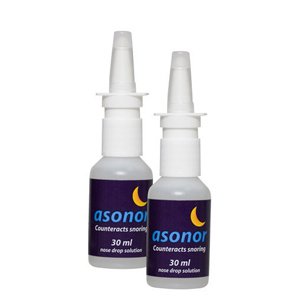Snoring is a common sleep-related issue that affects millions of people worldwide, often leading to disrupted sleep patterns and strained relationships. In search of relief, many individuals turn to snoring products designed to alleviate or eliminate snoring. However, with various options available on the market, it can be challenging to determine which products are truly effective.
In this post, we’ll explore various snoring products- what works and what doesn’t when it comes to finding snoring relief.
Understanding Snoring Products
Snoring products encompass a wide range of solutions addressing the underlying causes of snoring and promoting better sleep quality. These products can include nasal strips, oral appliances, nasal dilators, throat sprays, CPAP machines, and more. While some products target specific anatomical factors contributing to snoring, others focus on improving airflow or reducing nasal congestion.
What Works
- Oral Appliances: Mandibular advancement devices (MADs) and tongue stabilizing devices (TSDs) are highly recommended for individuals struggling with snoring caused by tongue or jaw positioning issues. By adjusting the position of the jaw or tongue, these devices effectively keep the airway open during sleep, leading to a significant reduction in snoring intensity and frequency.
- Nasal Strips and Nasal Dilators: Nasal strips and nasal dilators are non-invasive remedies for individuals experiencing snoring due to nasal obstruction or congestion. These solutions work by gently opening up the nasal passages, facilitating better airflow, and alleviating nasal congestion. They are particularly beneficial for those seeking relief from snoring related to nasal issues.
- CPAP Therapy: Continuous positive airway pressure (CPAP) therapy stands as the gold standard treatment for obstructive sleep apnea, but it also holds promise for severe snoring cases. CPAP machines administer a steady flow of air through a mask worn during sleep, effectively preventing airway collapse and mitigating snoring. While primarily recommended for sleep apnea, CPAP therapy can also provide significant relief for individuals grappling with severe snoring issues.
- Lifestyle Modifications:
In addition to utilizing snoring products, implementing lifestyle changes can further enhance your efforts to reduce snoring. Maintaining a healthy weight, particularly around the neck area, is crucial as excess weight can contribute to airway obstruction and exacerbate snoring. Prioritizing a balanced diet and regular exercise can help shed excess pounds and alleviate snoring. It’s also important to avoid alcohol and sedatives before bedtime as they relax the muscles in the throat, leading to increased snoring.
Establishing a consistent sleep schedule, even on weekends, helps regulate sleep cycles and minimize snoring. Creating a conducive sleep environment with a dark, quiet, and comfortable bedroom and practicing good sleep hygiene by limiting screen time before bed can also contribute to improved sleep quality.
What Doesn’t Work
- Throat Sprays: While throat sprays claim to lubricate the throat and reduce vibrations that cause snoring, their effectiveness is often limited and temporary. Many individuals find that throat sprays provide only short-term relief and may not address the underlying causes of snoring.
- Pillows and Sleep Position Devices: Certain pillows or sleep position devices claim to encourage side sleeping or elevate the head to reduce snoring. However, the effectiveness of these products can vary, and they may not provide significant relief for all individuals, especially those with more severe snoring or underlying sleep disorders.
- Home Remedies: While some home remedies like herbal supplements or essential oils are known as snoring solutions, their effectiveness is largely anecdotal and unsupported by scientific evidence. While these remedies may offer temporary relief for some individuals, they may not address the underlying causes of snoring or provide long-term relief.
Conclusion
Finding the right snoring product can be a process of trial and error, as what works for one individual may not work for another. It’s essential to consider the underlying causes of snoring and consult with a healthcare professional or sleep specialist to determine the most appropriate treatment options. By exploring different snoring products and understanding their mechanisms of action, you can take proactive steps toward finding relief and improving sleep quality.
Remember to approach snoring treatment holistically, considering lifestyle factors, sleep habits, and overall health in addition to using snoring products.
